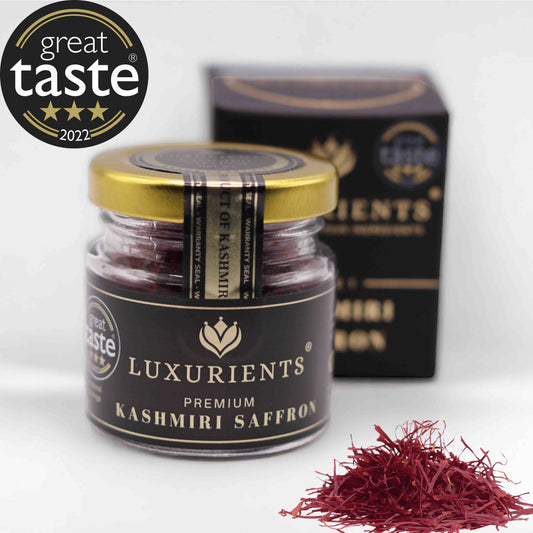
How to use Saffron during Ramadan
Share
The Use of Saffron During Ramadan: A Spice of Spiritual and Culinary Significance
Ramadan is a time of spiritual reflection, fasting, and community gatherings. As Muslims around the world observe this sacred month, food plays an essential role in nourishing the body after long hours of fasting. One ingredient that has stood the test of time and holds both culinary and medicinal significance during Ramadan is saffron.
The History and Significance of Saffron
Saffron, often referred to as "red gold," is one of the most expensive spices in the world due to its labor-intensive harvesting process. It has been used for centuries in Middle Eastern, Persian, and South Asian cuisines. Known for its rich golden hue, distinct aroma, and earthy flavor, saffron is often incorporated into special Ramadan dishes to enhance both their taste and visual appeal.
Culinary Uses of Saffron During Ramadan
Saffron finds its way into a variety of traditional Ramadan meals, from drinks to desserts and main courses. Some of the most popular uses include:
- Saffron Milk (Shir Pira or Kesar Doodh): A warm, soothing drink made with milk, saffron, and nuts, providing essential nutrients and energy after a day of fasting.
- Saffron Rice: A fragrant, golden-hued rice dish often served with meats or vegetables, adding a luxurious touch to Iftar tables.
- Desserts: Saffron is a key ingredient in traditional Ramadan sweets such as phirni, sheer khurma, and saffron-infused baklava, offering a delicate and aromatic flavor.
- Soups and Stews: A pinch of saffron can elevate the taste of hearty broths and stews, making them even more comforting after a long fast.
Health Benefits of Saffron for Fasting
Beyond its culinary appeal, saffron has various health benefits that make it particularly beneficial during Ramadan:
- Aids Digestion: Saffron has been known to support digestive health, reducing bloating and indigestion that can occur after breaking the fast.
- Boosts Mood and Reduces Fatigue: The active compounds in saffron, such as crocin and safranal, have been linked to improved mood and reduced stress—important factors when fasting for extended hours.
- Rich in Antioxidants: Saffron is packed with antioxidants that help combat oxidative stress and inflammation, promoting overall well-being.
- Supports Hydration: Saffron-infused drinks can aid hydration, helping to replenish fluids lost during fasting hours.
How to Use Saffron Effectively During Ramadan
To make the most of saffron, consider these tips:
- Use it Sparingly: A little goes a long way. Just a few strands soaked in warm water or milk release their full aroma and color.
- Pair with Other Nutrient-Rich Ingredients: Combine saffron with milk, nuts, or dates for an energy-boosting treat.
- Incorporate it in Iftar and Suhoor Meals: Including saffron in both breaking-the-fast meals (Iftar) and pre-dawn meals (Suhoor) can help provide sustained energy throughout the day.
Conclusion
Saffron is more than just a luxurious spice—it is a symbol of tradition, nourishment, and well-being during Ramadan. Whether infused in drinks, incorporated into main dishes, or added to desserts, saffron enhances the Ramadan dining experience while offering valuable health benefits. By embracing this ancient spice, fasting individuals can enrich both their spiritual and culinary journey during this holy month.


1 commentaire
Great and can’t wait for Ramadan to start! Saffron milk at Iftar is my fav.